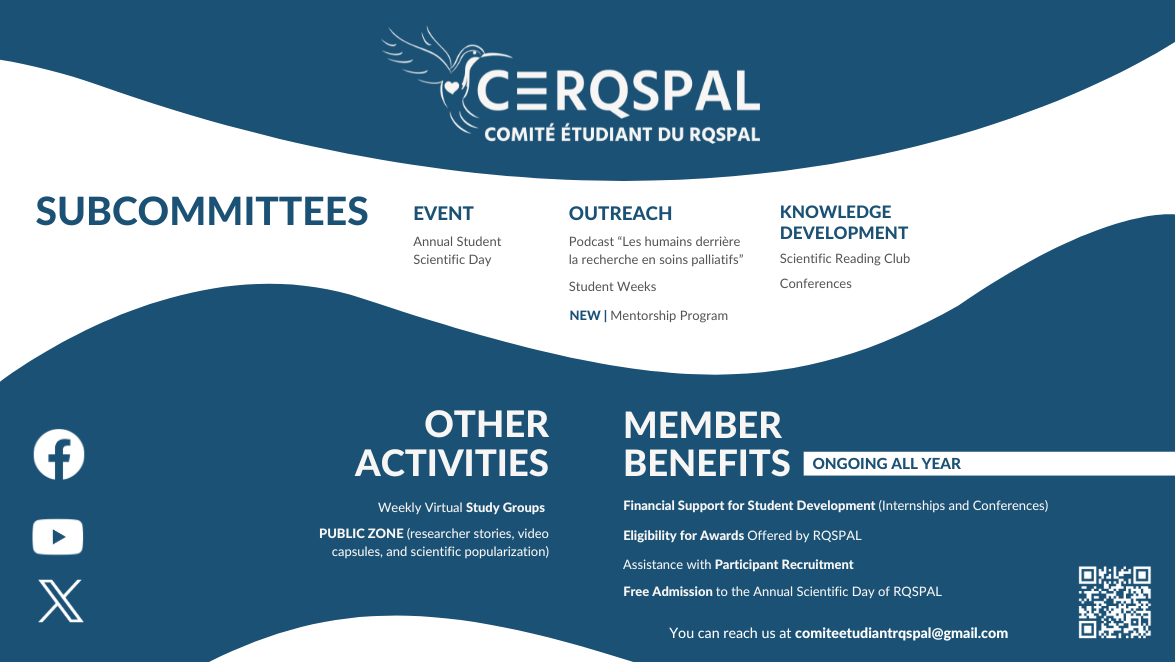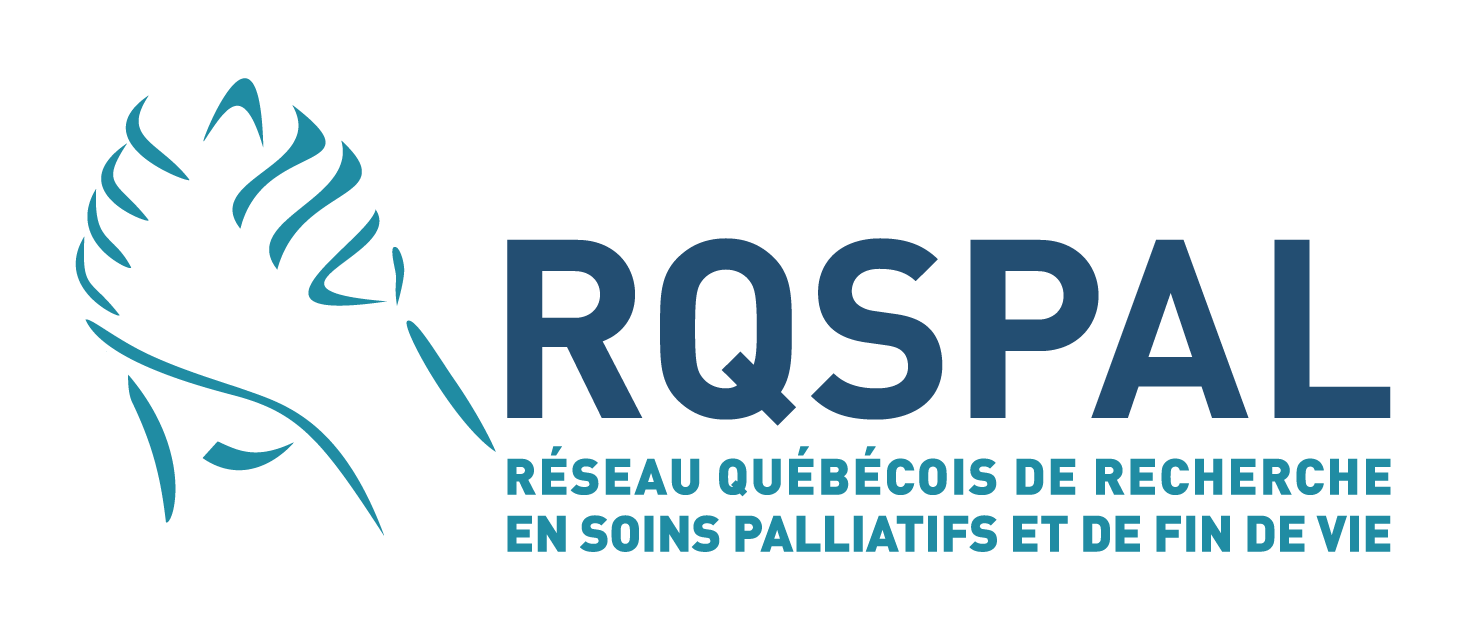Mandate :
The Student Committee is a voice for RQSPAL’s graduate and postgraduate students and serves a preferential channel of communication between the next generation and the directors. Its goal is to ensure a stimulating and structured living and learning environment to all of the RQSPAL’s students. Its mandate is to represent all students registered in graduate level studies whose research activities relate to palliative and end-of-life care. Its function is to advise the Executive committee and Scientific committee about its priorities, to participate in the RQSPAL’s mandate and to increase knowledge diffusion and transfert. The Student Committee can also participate in developing activities that can increase student members’ involvement and feelings of belonging to the RQSPAL.
Composition :
The Student Committee consists of graduate and post-graduate students registered in a university program and represents all RQSPAL’s student members. Ideally, the committee includes five members distributed as follows: two Master’s level students, two doctoral level students, and one postdoctoral intern. The RQSPAL’s coordinator (non-voting) is also in the Student Committee. The Student Commitee’s members are:
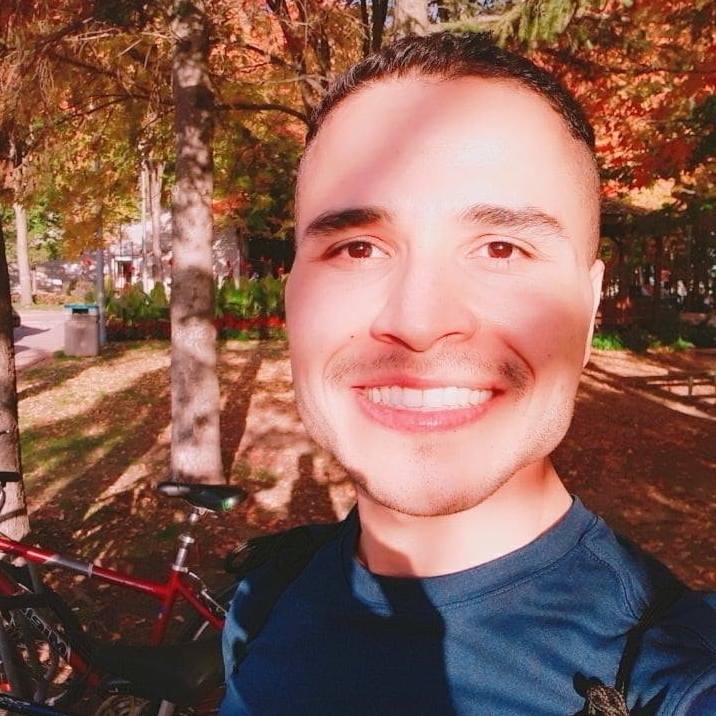
Malek Amiri, Ph.D. student in nursing sciences at Université Laval under the supervision of Nicolas Vonarx.
Malek holds a Bachelor’s degree in experimental sciences, as well as a professional license and a Master’s degree with a thesis in nursing sciences. He aims to pursue a career in university teaching and contribute to the development of new nursing theories that inspire practitioners in palliative care.
Under the supervision of Nicolas Vonarx, he is currently exploring the end-of-life experience of people with cancer, approaching the existential anxiety towards death from the philosophical perspective of Martin Heidegger. His thesis adopts a methodological posture focused on understanding and interpretation rather than quantification and confirmation. He seeks to clarify the experience of existential anxiety towards death to potentially develop nursing interventions tailored to the experiences of individuals living with advanced cancer.

Sabrina Anissa El Mansali, Ph.D. candidate in psychoeducation at Université de Sherbrooke (Longueuil campus), under the supervision of Deborah Ummel and Anne-Marie Tougas.
Volunteer at CHUM (patient listening and support), her research focuses on end-of-life issues, specifically anticipatory grief and bereavement. Understanding these phenomena will enable her to intervene with adolescents who have lost a parent due to an anticipated loss (e.g., cancer).
Using a qualitative approach, her goal is to identify the psychosocial needs of families where adolescents will experience the anticipated loss of a parent. Drawing from multiple perspectives (intervenants, parents, adolescents), she aims to propose various intervention strategies for these families.
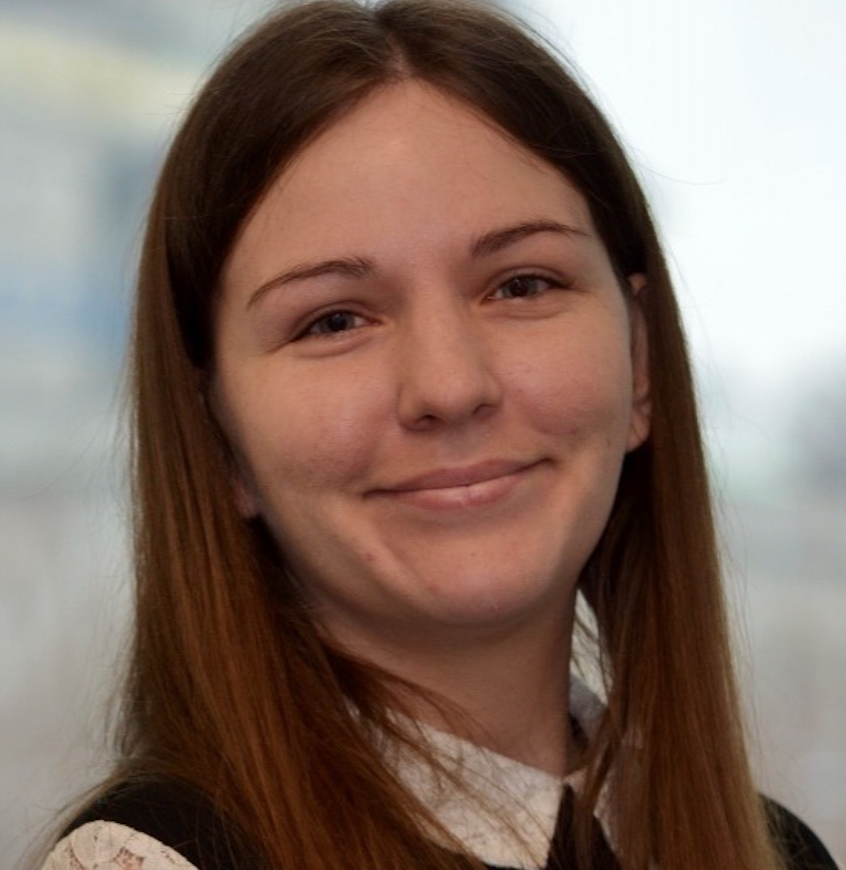
Isabelle Auclair, Ph.D. candidate at the Faculty of Nursing Sciences (FSI) at Université de Montréal, under the supervision of Anne Bourbonnais and Maryse Soulières.
Isabelle holds a Bachelor’s and a Master’s degree in nursing sciences. She currently works as a research coordinator. Through her doctoral studies, she aims to pursue a career as a researcher in the field of palliative and end-of-life care for the elderly and their families.
Her thesis focuses on promoting the involvement of family caregivers in end-of-life care for elderly individuals living in long-term care facilities, using a participatory and interdisciplinary approach.

Sarah Caouette, Master’s student in nursing sciences at Université de Montréal under the supervision of Émilie Allard.
Having completed my Bachelor’s degree in Nursing at Université de Montréal, I currently work as a clinical nurse in the palliative care unit at Centre Champlain. This experience, along with others as a student nurse, has inspired my research thesis on bereavement follow-up for families of adult patients who have passed away in palliative care. Specifically, I am exploring nursing interventions for bereavement follow-up that can be implemented for this clientele.
I am also involved in palliative care research as a research assistant, under the supervision of researcher Émilie Allard, to understand the impact of COVID-19 on end-of-life care in long-term care homes. Additionally, I will be involved as a tutor at my faculty to mentor students in developing nursing knowledge and skills in palliative and end-of-life care.

Émilie Cormier, Ph.D. candidate in psychology (scientific-professional profile) at Université du Québec à Montréal, under the supervision of Valérie Bourgeois-Guérin.
After completing a Master’s degree in art therapy, Émilie is currently a doctoral candidate in psychology. Motivated by her internship and volunteer experiences with end-of-life patients and elderly homeless individuals, her doctoral research aims to better understand the end-of-life palliative care experience of elderly people who are homeless or have experienced homelessness. She hopes this understanding will contribute to the development of more sensitive and appropriate end-of-life care practices for these vulnerable individuals. By approaching their end-of-life experience through the metaphorical concept of “home” and the existential notion of “dwelling,” she also seeks insights that could potentially enhance the support provided to homeless individuals throughout their lives.
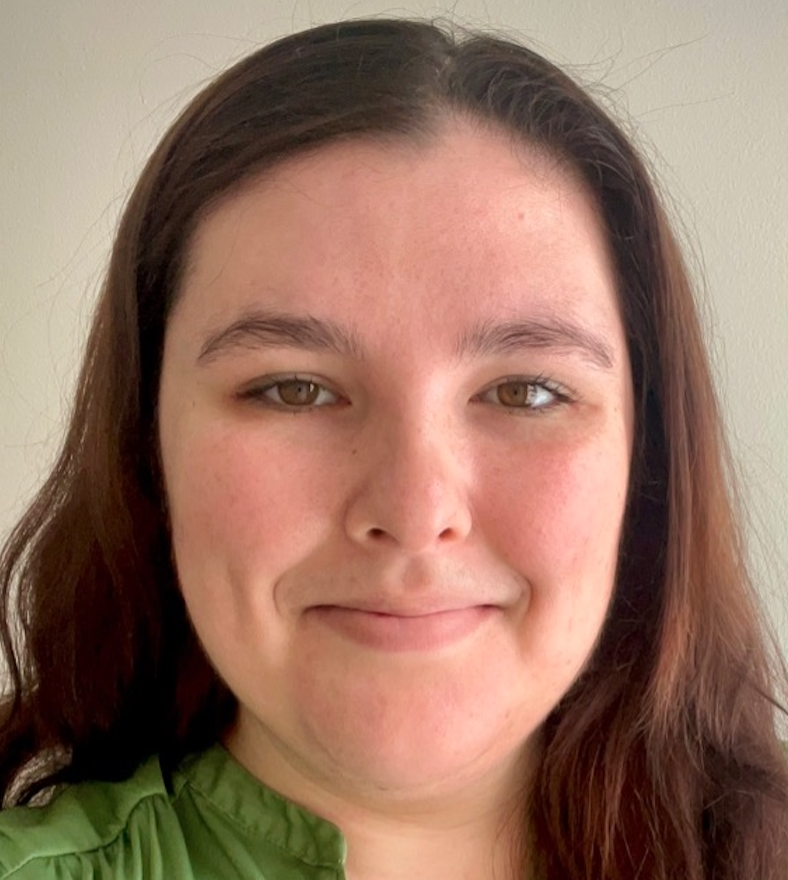
Alexandra Daicu, Master’s student in social work, research profile at Université du Québec à Montréal, currently supervised by Isabelle Dumont.
Holder of a Bachelor’s degree in Psychology from Université de Montréal, she completed the propaedeutic stage for a Master’s degree in social work and is concurrently pursuing a microprogram in post-secondary teaching at Université de Montréal. She aspires to build a career in university teaching and research, particularly in the field of perinatal bereavement.
Her research focuses on the meaning attributed to the experience of perinatal bereavement among women who are homeless or at risk of homelessness. Alexandra is interested in themes of bereavement, end of life, and pediatric palliative care, adopting a phenomenological approach to address these issues. In this context, she aims to understand the human dimensions and lived experiences of these women, with the goal of contributing to a better understanding and management of specific needs related to perinatal bereavement.
Alexandra Guité-Verret , Ph.D. candidate in psychology at Université du Québec à Montréal, under the supervision of Mélanie Vachon.
, Ph.D. candidate in psychology at Université du Québec à Montréal, under the supervision of Mélanie Vachon.
Alexandra holds a Master’s degree in Literature from Université de Montréal. She is interested in the social and individual representations of dying and illness, particularly the use of breast cancer metaphors among patients undergoing treatment, in remission, or nearing the end of life.
Through qualitative research, she seeks to understand the impact of illness representations on the patient’s experience, the role of the caregiver, and the patient’s transition from the cancer world to palliative care. Her role as a volunteer companion for patients in oncology at the CHUM Virage Foundation aligns with her ongoing research.
Bich-Lien Nguyen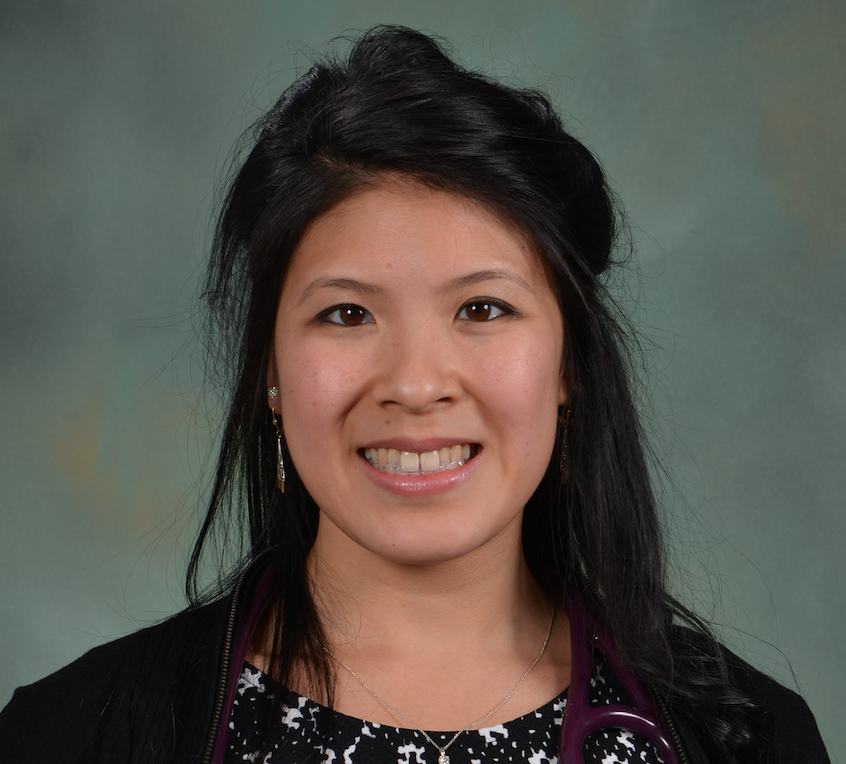 , specialized nurse practitioner in primary care (IPSPL), doctoral student in nursing sciences at the Université de Montréal, under the supervision of Anne Bourbonnais and Boris H. J. M. Brummans. Master’s degree in health sciences research. Master’s degree in nursing, Graduate Diploma in primary care.
, specialized nurse practitioner in primary care (IPSPL), doctoral student in nursing sciences at the Université de Montréal, under the supervision of Anne Bourbonnais and Boris H. J. M. Brummans. Master’s degree in health sciences research. Master’s degree in nursing, Graduate Diploma in primary care.
My research projects as a student have been inspired by clinical situations experienced in the field. For me, research is greatly informed by clinical practice, which is why I continue to work part-time as a specialized nurse practitioner in long-term care homes (CHSLD). Furthermore, my experience in healthcare management has led me to focus on organizational challenges in long-term care for my doctoral project, which focuses on the relocation of hospitalized elderly individuals to long-term care facilities (methodology: institutional ethnography).
Research Interests: organization of care and services particularly for the elderly, nursing sciences, primary care, long-term care, institutional ethnography (PhD), and mixed methods (M.Sc research).
Clinical Interests and Involvement in Palliative and End-of-Life Care: I practice in primary care (GMF since 2017), but my preferred practice as an IPSPL is providing end-of-life care in CHSLD settings. I am part of the first cohort of IPSPLs who have been able to work in CHSLDs since 2018, when IPS guidelines made this practice possible. As an IPSPL, I ensure that my palliative and end-of-life patients receive the best possible care to relieve their physical and psychological symptoms. I develop the best possible treatment plan to ensure their comfort and make it a personal mission to educate staff on palliative and end-of-life care if they are less familiar with this type of care. As a teacher at the Université de Sherbrooke for IPSs, I also train future generations in geriatric and long-term care. I sincerely believe that every individual deserves to live their final moments with dignity and in comfort.
Leadership Team: Anne Bourbonnais (Director, Faculty of Nursing Sciences, UdeM), Boris H. J. M. Brummans (Co-Director – Department of Communications, UdeM)
You can learn more about the Student Committee’s activities by visiting their Facebook page!
